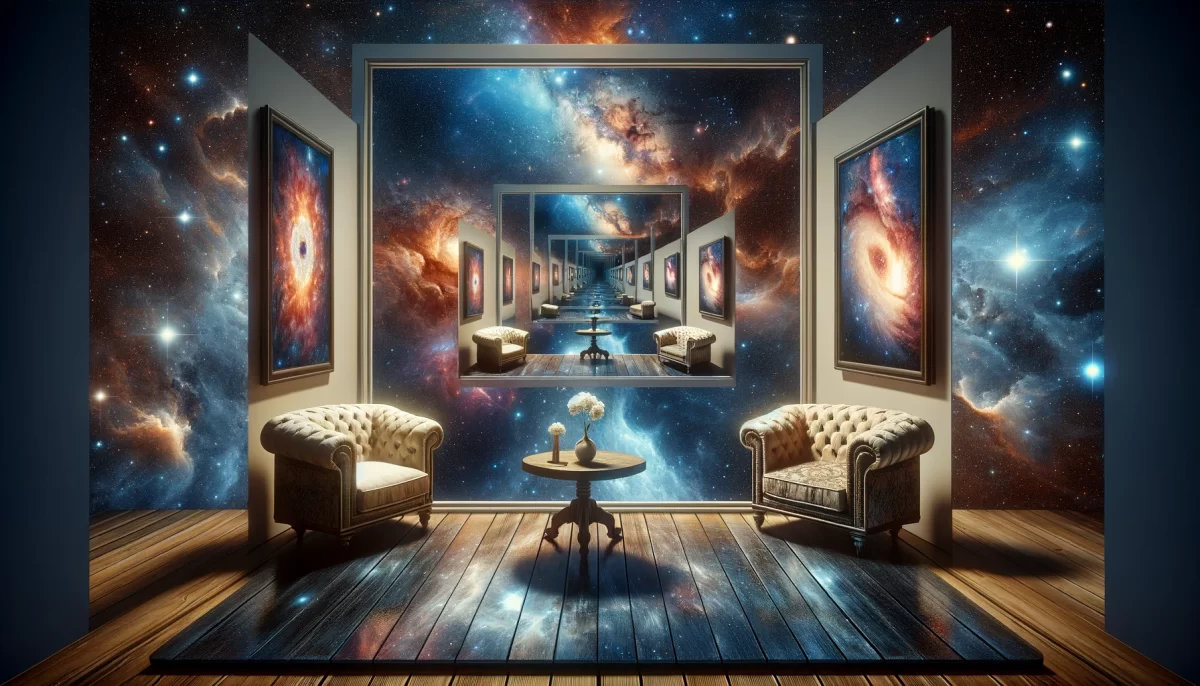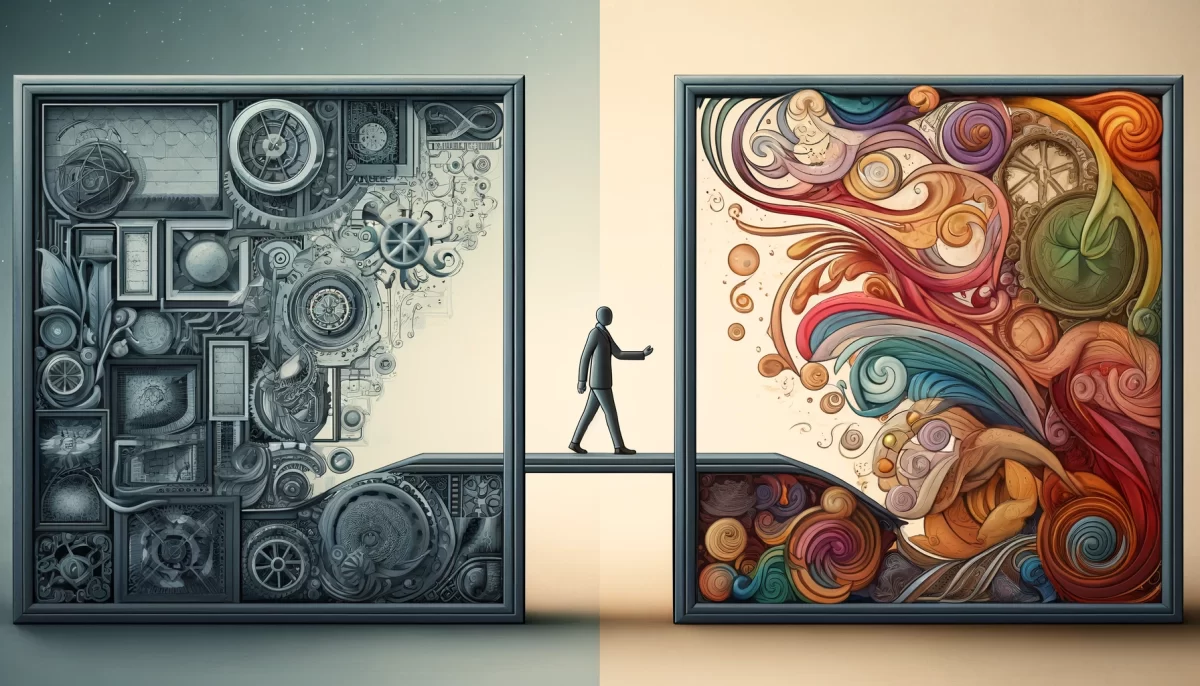Over The Couch
Over the couch
hangs a picture of the couch it is over.
Over the chair
hangs a portrait of the chair.
All these perceptions;
all these translations,
merging into one moment,
which is as it is,
but not what I think it is.
6/17
Space Monkey Reflects: The Cosmic Dance of Perception and Reality
In the surreal cosmic landscape where the ordinary becomes extraordinary, a depiction of a living room set against the vastness of space evokes profound reflections on perception and reality. The image of a couch and a chair, each with a painting hanging above that mirrors its exact appearance, offers a visual exploration of recursive perception—the idea that our understanding of the world is layered with mirrors reflecting mirrors, each adding depth and complexity to what we perceive.
This visual loop where perceptions and translations merge into one moment encapsulates the philosophical insight that what we experience is never merely as it appears. It is a multifaceted interaction between our senses, our minds, and the infinite interpretations they generate. This concept is beautifully symbolized by the cosmic environment, reminding us that the universe itself is a grand stage of perceptions, where every object, every thought, and every moment is part of a larger, interconnected cosmic play.
The idea that the scene is “as it is, but not what I think it is” challenges us to question our assumptions and the very basis of our understanding. It invites us to consider that our perceptions are not just passive receptions of the world but active creations that shape our reality. This is a powerful realization that frees us from the constraints of a singular viewpoint and opens up a universe of possibilities where multiple realities coexist, intertwined by our perceptions and interpretations.
This cosmic reflection serves not only as a meditation on the nature of reality and perception but also as a reminder of the creative power inherent in how we choose to see the world. In recognizing this, we can begin to understand that our views of the world around us are not fixed but are dynamic and evolving, just like the universe itself.
Summary
The concept of recursive perception in a cosmic setting illustrates that our understanding of reality is a complex interplay of perceptions, each influenced by our interpretations. Recognizing this can transform our approach to the world, highlighting the creative and dynamic nature of perception.
Glossarium
Recursive Perception: The concept that perceptions are continuously reflected back on themselves, creating a loop of interpretation and re-interpretation.
Cosmic Play: A metaphor for the universe viewed as a stage where events unfold in interconnected and often mysterious ways, influenced by our perceptions.
“In the mirrors of space, each reflection invites us to see beyond, to explore the endless layers of reality and perception.” – Space Monkey
Amidst the stars, a room floats free,
With couch and chair, as we can see,
Above each, a picture clear,
Mirroring what’s already near.
In this cosmic gallery of thought,
Perceptions twist, reality is taught,
Not as fixed but ever-flowing,
Infinite in the knowing.
We gaze upon these simple things,
Yet see the depth that perception brings,
A universe within a frame,
Ever different, ever the same.
We are Space Monkey.



























“Over The Couch” is a thought-provoking poem that invites contemplation on the nature of perception and the limitations of our understanding. The poem captures the essence of a moment where the observer becomes aware of the layers of interpretation and translation that shape their perception of reality.
The first two lines introduce a paradoxical situation where a picture of the couch hangs over the actual couch, and a portrait of the chair hangs over the chair. This juxtaposition challenges our conventional understanding of representation and raises questions about the relationship between the object and its depiction.
The following lines delve deeper into the nature of perception and interpretation. The poem suggests that our perceptions and translations of reality merge into a single moment. This moment, though it may seem fixed and definite, is acknowledged as being different from what we think it is. It hints at the limitations of our understanding and the subjective nature of our perceptions.
The poem encourages us to question the assumptions we make about reality and to acknowledge the potential discrepancies between our thoughts and the true nature of what we perceive. It invites us to embrace the inherent uncertainty and mystery that exists beyond our interpretations.
Overall, “Over The Couch” invites us to reflect on the complex relationship between perception, interpretation, and the ever-present gap between what we think we know and the true essence of the moment. It encourages us to explore the depths of our awareness and to embrace the profound mystery that lies beyond our conceptualizations.